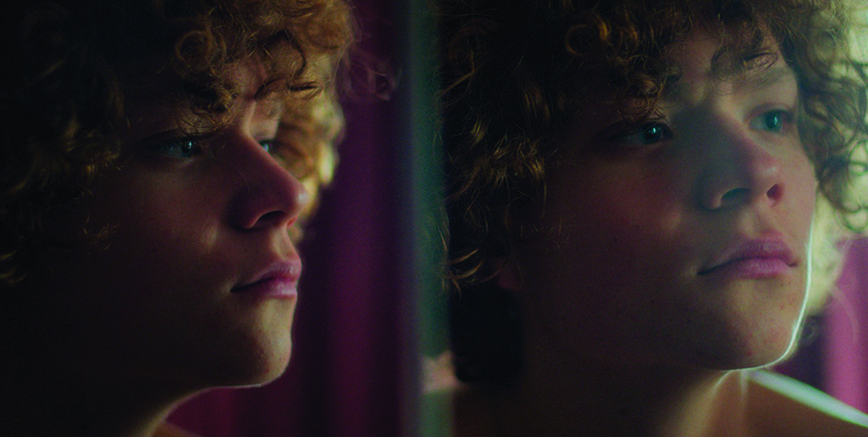Night cap with Sirene
An interview with Zara Dwinger, director of Sirene
What did you seek to explore through the character of Kay?
I wanted to explore the feelings of confusion a teenager can experience when their identity is not as clear as they thought it was. Nowadays, gender and identity are more connected than ever. I didn’t encounter the specific doubts about gender that Kay experiences, but I did struggle during my teenage years for other reasons. That’s why I did a lot of research, and talked to trans teens. In these conversations a lot of them went through a phase of denial. This really touched me, and it inspired me for the story of Kay. A struggle with one’s true self.
Would it be fair to call this a coming-of-age story? Or is that a label you don’t think is accurate?
Not at all! I think the film is a prototype coming-of-age story. Although the core of the film is about gender, on the surface it’s more just about being young. I wanted to explore the confusion of growing up and becoming who you are. I think that is something very universal. Everybody feels out of place with their old friends at one point or another, everyone has life-changing friendships when they’re young. I think the search for identity is something we all experience, in all our different forms.
You have experience in music videos and commercials. Did that inspire the aesthetics of the film? What are your cinematic influences?
I do like music video-like aesthetics, like the use of slow-motion or very prominent colours. I think it can lift the fictional world above a purely realistic one, and give it a larger-than-life feeling. I also get inspired by documentaries. There is nothing more fascinating than real people. A more recent cinematic influence would be the coming-of-age films of Andrea Arnold, but a film that has also inspired me for a long time is Fellini’s 8 ½ with its funny but poetic exploration of inner turmoil.
Can you tell us about the casting process?
We saw a lot of kids for the role of Kay. From boys with some acting experience, to boys that we scouted from schools, or kids who were actually in the process of transitioning. But a lot of boys with some acting experience didn’t even want to audition, for fear of being bullied for the role later. In the end it was immediately clear when Thor Braun walked in. He was dedicated to the role, interested by its complexities and naturally had both a hard and a soft side. It was a risk beforehand, not knowing if we would find the perfect kid, but in the end I couldn’t have wished for a better Kay.
What sort of freedom would you say the short format allows?
It gives you the freedom of not having to explain everything, of having the opportunity to tell just a slice of a bigger story surrounding yours. This way it can really highlight a certain feeling, as in Sirene. For example, I didn’t want the film to be about social acceptation, only about the inner turmoil of our protagonist. The short format allowed me to leave this out almost completely and leave that story up to the fantasies of the audience.
Sirene is being shown in International Competition I5.








